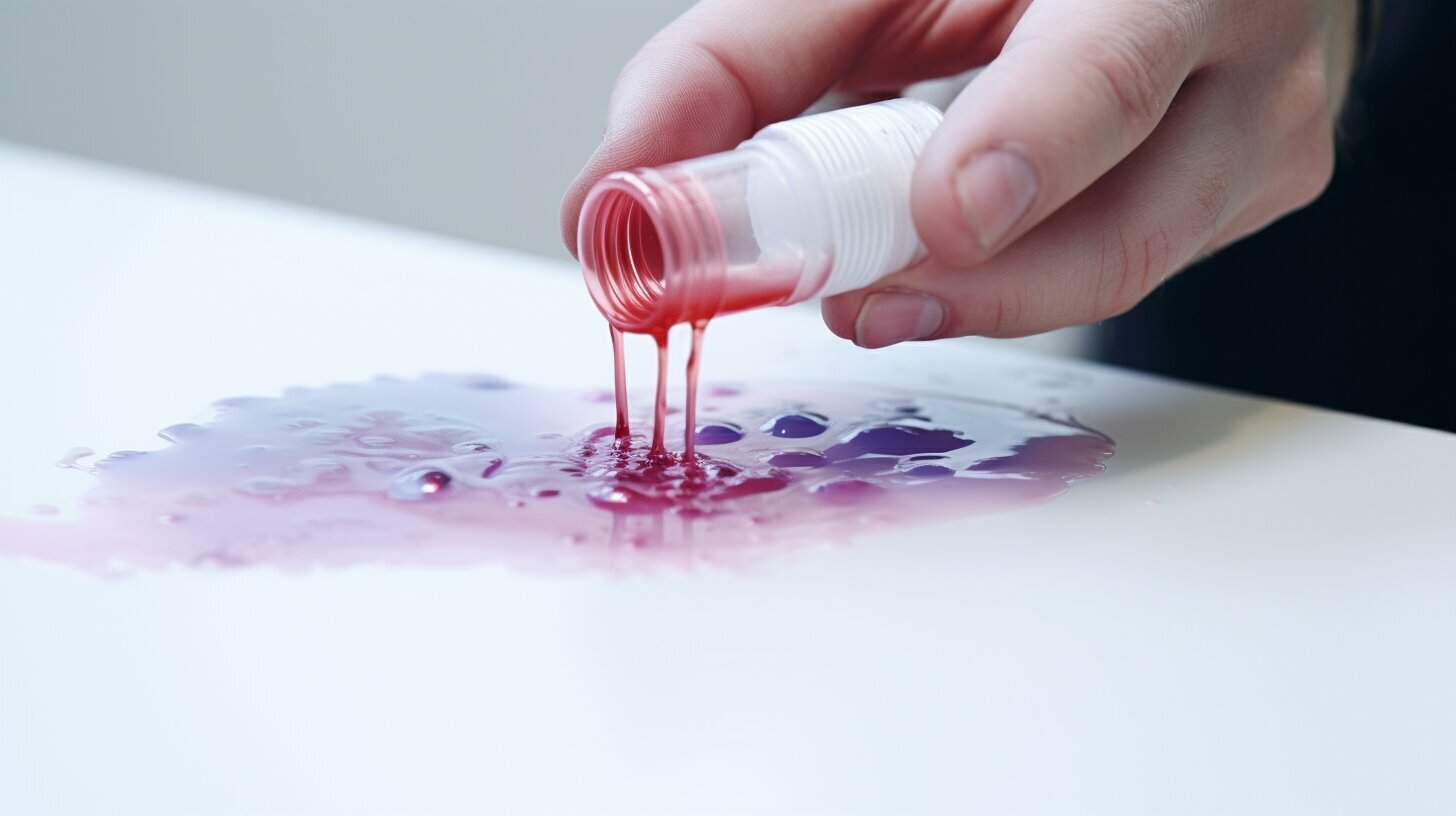As a bearded man for many years, I have come across various questions related to health and style. One question that has been asked surprisingly often is whether a beard can cause or trigger allergies. It’s a valid concern, considering the number of allergens we encounter in daily life. In this article, I will explore this question in detail, examine potential allergens in facial hair, and provide recommendations for those who may experience beard-related allergies.
Contents
- 1 TL;DR
- 2 Understanding Allergies and Their Triggers
- 3 Allergens in Beards: Fact or Fiction?
- 4 Beard Care and Hygiene Practices
- 5 Common Beard Allergens and Symptoms
- 6 Managing Beard Allergies: Tips and Strategies
- 7 Seeking Professional Advice and Allergy Testing
- 8 Other Factors to Consider for Allergic Reactions
- 9 The Benefits of Having a Beard
- 10 Conclusion
- 11 FAQ
- 11.1 Q: Can a beard cause allergies?
- 11.2 Q: What are some common allergens associated with beards?
- 11.3 Q: How can I prevent allergens from accumulating in my beard?
- 11.4 Q: What are the symptoms of beard-related allergies?
- 11.5 Q: Should I seek professional advice if I suspect my beard is causing allergies?
- 11.6 Q: Are there any benefits to having a beard?
- 11.7 Q: How can I manage and minimize allergic reactions related to my beard?
- 11.8 Q: What other factors should I consider for allergic reactions?
- 11.9 Q: How can I maintain a healthy and comfortable beard while managing allergens?
TL;DR
Understanding Allergies and Their Triggers
Before we can determine if a beard can cause allergies, it’s important to have a clear understanding of allergies themselves and the common triggers that can lead to allergic reactions.
Allergies occur when the body’s immune system overreacts to a substance or allergen, that is typically harmless to most people. These allergens can enter the body through the skin, nose, mouth, or lungs, triggering an immune response that produces symptoms such as sneezing, coughing, itching, and swelling.
Common allergens include pollen, dust mites, pet dander, certain foods, and insect venom (which may not exactly be relevant to beards, but hey). Other triggers may include changes in temperature or humidity, stress, and exercise.
It’s important to note that everyone’s immune system is unique, and what triggers an allergic reaction in one person may not affect another person at all.
Allergens in Beards: Fact or Fiction?
The fact is that beards can indeed accumulate allergens such as pollen, dust, and pet dander, much like any surface that comes in contact with the air. However, the extent to which these allergens can cause reactions in individuals can vary.
It’s also important to note that individual susceptibility is a significant factor in determining whether a particular allergen will cause a reaction. What may cause a reaction in one person may not affect another.
So, while beards may not inherently cause allergies, they can harbor allergens that may trigger reactions in susceptible individuals. It’s important to be aware of the potential allergens and take steps to minimize the risk of exposure, such as regular cleaning and proper beard care.
Despite claims to the contrary, there is no scientific evidence to suggest that beards themselves are inherently allergenic. As with most allergens, it is the accumulation and concentration of such that leads to reactions.
Ultimately, while it’s possible for a beard to cause allergies, it’s unlikely to cause a widespread concern. However, if you are experiencing symptoms that you suspect may be related to your beard, it’s advisable to seek professional advice.
Beard Care and Hygiene Practices
Proper beard care and hygiene practices are crucial to maintaining a healthy and clean beard, reducing the risk of allergen accumulation and potential allergic reactions. As a professional copywriting journalist, I recommend the following beard care tips:
| Beard Care Tip | Hygiene Practice |
|---|---|
| Regularly wash your beard with a mild shampoo and warm water | Use a clean towel to dry your beard, and avoid sharing towels with others to prevent the spread of bacteria |
| Trim your beard regularly to prevent overgrowth and stray hairs | Clean your beard trimmer after each use to prevent bacteria buildup |
| Apply beard oil or balm to keep your beard soft and moisturized | Use a separate comb or brush to style your beard, and clean it regularly to prevent bacteria buildup |
| Avoid touching your beard throughout the day | Wash your hands frequently and avoid touching your face to prevent the spread of bacteria and potential allergens |
By following these beard care and hygiene practices, you can maintain a clean and healthy beard, reducing the risk of allergen accumulation and potential allergic reactions. It is also important to use caution when applying any new beard products, such as oils or balms, to avoid potential allergic reactions. Always check the ingredients list for potential allergens before use, and test a small amount on your skin before applying to your beard.
Common Beard Allergens and Symptoms
While beards can add to a person’s individual style, they can also contain allergens that may trigger allergic reactions. Some of the common allergens found in beards include:
| Allergen | Symptoms |
|---|---|
| Pollen | Sneezing, itchy eyes, runny nose |
| Dust mites | Coughing, wheezing, chest tightness |
| Bacteria | Redness, irritation, and itching of the skin |
| Fungi | Flaky skin, dryness, and itching |
It is important to note that not everyone who has a beard will experience allergic reactions. Symptoms typically occur in individuals who are susceptible to allergies or have pre-existing conditions such as asthma or eczema.
If you experience allergic reactions related to your beard, you may notice symptoms such as:
- Sneezing
- Runny nose
- Itchy or watery eyes
- Coughing or wheezing
- Skin irritation, redness, or itching
It is important to identify the specific allergen causing the reaction in order to effectively manage or prevent future reactions. Consulting with a healthcare professional and undergoing allergy testing can help identify the allergen and provide personalized recommendations for managing the allergy.
Managing Beard Allergies: Tips and Strategies
If you experience allergies related to your beard, there are several strategies you can use to minimize the symptoms and manage your condition. Here are some effective tips:
- Practice good beard hygiene: Keeping your beard clean is essential to prevent the buildup of allergens. Wash your beard regularly with a mild shampoo and conditioner. Avoid using harsh soaps or chemicals that could irritate your skin or dry out your beard.
- Trim your beard regularly: Trimming your beard can reduce the amount of hair that collects allergens like pollen, dust, and pet dander. Use scissors or clippers to maintain the length and shape of your beard, and avoid long or unkempt styles.
- Avoid touching your face: Touching your face can transfer allergens from your hands to your beard, exacerbating your symptoms. Try to minimize touching your face and beard throughout the day, and wash your hands frequently to reduce the risk of contamination.
- Use a beard oil or balm: Applying a beard oil or balm can moisturize your skin and hair, reducing the risk of dryness and irritation. Look for products that contain natural ingredients like jojoba oil, coconut oil, and shea butter.
- Manage your allergies: If you have known allergies, such as hay fever or pet allergies, it’s important to manage these conditions alongside your beard-related allergies. Take medication as prescribed, and avoid allergens whenever possible.
- Consult a healthcare professional: If your symptoms persist or worsen despite your best efforts, it may be necessary to seek medical advice. A healthcare professional can offer personalized recommendations and allergy testing to help identify your specific triggers. They may also prescribe medication or recommend other treatments to help manage your symptoms.
By adopting these tips and strategies, you can minimize the risk of allergic reactions and maintain a healthy and comfortable beard.
Seeking Professional Advice and Allergy Testing
While managing beard allergies can be challenging, seeking professional advice can help identify triggers and provide solutions to alleviate symptoms. Consulting with a healthcare professional who specializes in allergies is advisable for those who experience frequent allergic reactions.
Allergy testing can be performed to identify specific allergens causing the allergic reaction. This testing involves exposing the skin to various allergens and observing the skin’s reaction. Based on the results, a professional can provide personalized recommendations for managing the allergy.
It’s important to inform the healthcare professional about the beard and potential allergens associated with it, as this information can help them make accurate diagnoses and provide appropriate treatment options.
Other Factors to Consider for Allergic Reactions
While a beard itself may not directly cause allergies, there are other factors that could contribute to allergic reactions. It’s important to be aware of these factors to minimize the risk of allergic reactions:
- Personal hygiene: Poor hygiene practices can lead to the accumulation of allergens in facial hair.
- Environmental factors: Exposure to pollutants and irritants in the environment can increase the risk of allergic reactions.
- Individual susceptibility: Some people may be more prone to allergic reactions due to genetic or other factors.
By addressing these additional factors, beard wearers can further reduce the risk of allergic reactions and maintain a healthy and comfortable beard.
The Benefits of Having a Beard
While concerns about potential allergens in beards may exist, it’s important to note that having facial hair can also bring numerous benefits. Here are some advantages that come with having a beard.
- Better sun protection: A beard can provide natural protection against harmful UV rays, helping to prevent skin damage and reducing the risk of skin cancer.
- Reduced acne and skin irritation: Shaving can cause irritation and razor burn, leading to acne and other skin issues. Growing a beard can help reduce these problems by eliminating the need for daily shaving.
- Enhanced masculinity: A well-groomed beard can enhance an individual’s self-image, providing a sense of confidence and masculinity.
- Improved style and appearance: A properly maintained beard can add a unique touch to an individual’s appearance, creating a distinctive and stylish look.
- Increased warmth: A beard can help keep the face and neck warm during colder months, providing natural insulation against the elements.
Overall, there are numerous benefits to having a beard, and individuals should not let concerns about potential allergens deter them from enjoying these advantages. I’ve written a blog-post about the benefits of having a beard here if you want to check it out! By adopting proper beard care practices and being aware of common allergens, beard wearers can minimize the risk of allergic reactions and enjoy the benefits of having facial hair.
Conclusion
I have found that while a beard may not directly cause allergies, it can potentially harbor allergens that may trigger reactions in susceptible individuals. It is important for beard wearers to adopt good beard care practices, seek professional advice if necessary, and be aware of common allergens to minimize the risk of allergic reactions.
In addition, it is essential to consider other factors that could contribute to allergic reactions, including personal hygiene, environmental factors, and individual susceptibility. While there are potential risks, having a beard also comes with various benefits, including enhancing an individual’s self-image and style.
For those who choose to keep their beards despite potential allergens, proper allergen management is crucial. This includes regular washing and grooming of your beard, using hypoallergenic products, and avoiding known allergens.
If you suspect that your beard is causing allergies, seeking professional advice and undergoing allergy testing can help identify specific triggers and provide personalized recommendations to manage your allergies. Overall, being aware of potential allergens and taking the necessary precautions can help beard wearers enjoy the benefits of facial hair while minimizing the risk of allergic reactions.
FAQ
Q: Can a beard cause allergies?
A: While a beard itself may not directly cause allergies, it can potentially harbor allergens that may trigger reactions in susceptible individuals.
Q: What are some common allergens associated with beards?
A: Common allergens associated with beards include dust, pollen, pet dander, and food particles.
Q: How can I prevent allergens from accumulating in my beard?
A: Regularly washing and grooming your beard, using hypoallergenic products, and keeping your living environment clean can help prevent allergens from accumulating in your beard.
A: Symptoms of beard-related allergies can include itching, redness, rash, swelling, and respiratory issues such as sneezing or difficulty breathing.
Q: Should I seek professional advice if I suspect my beard is causing allergies?
A: It is advisable to seek professional advice if you suspect your beard is causing allergies. A healthcare professional can provide personalized recommendations and perform allergy testing to identify specific triggers.
Q: Are there any benefits to having a beard?
A: Yes, having a beard can provide various benefits such as enhancing one’s self-image, providing a sense of style, and offering protection against certain environmental elements.
A: Managing beard-related allergies involves adopting good beard care practices, such as regular cleaning and grooming, using hypoallergenic products, and minimizing exposure to common allergens.
Q: What other factors should I consider for allergic reactions?
A: In addition to beard-related factors, personal hygiene, environmental factors, and individual susceptibility can also contribute to allergic reactions.
Q: How can I maintain a healthy and comfortable beard while managing allergens?
A: Proper allergen management for beard wearers includes regular cleaning and grooming, using hypoallergenic products, and minimizing exposure to allergens through personal hygiene and environmental control.
Amazon and the Amazon logo are trademarks of Amazon.com, Inc, or its affiliates.









Leave a Reply